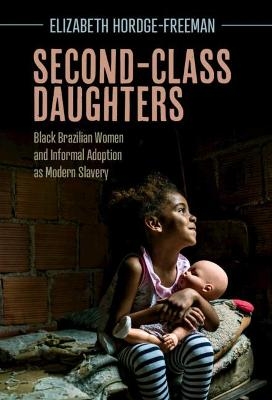
Second-Class Daughters
Cambridge University Press (Verlag)
978-1-316-51471-9 (ISBN)
A legacy of the transatlantic slave trade, Brazil is home to the largest number of African descendants outside Africa and the greatest number of domestic workers in the world. Drawing on ten years of interviews and ethnographic research, the author examines the lives of marginalized informal domestic workers who are called 'adopted daughters' but who live in slave-like conditions in the homes of their adoptive families. She traces a nuanced and, at times, disturbing account of how adopted daughters, who are trapped in a system of racial, gender, and class oppression, live with the coexistence of extreme forms of exploitation and seemingly loving familial interactions and affective relationships. Highlighting the humanity of her respondents, Hordge-Freeman examines how filhas de criação (raised daughters) navigate the realities of their structural constraints and in the context of pervasive norms of morality, gratitude, and kinship. In all, the author clarifies the link between contemporary and colonial forms of exploitation, while highlighting the resistance and agency of informal domestic workers.
Elizabeth Hordge-Freeman is Associate Professor of Sociology, Senior Advisor to the President and Provost for Diversity and Inclusion, and Interim Vice President for Institutional Equity at the University of South Florida. She received a Fulbright grant to Brazil and Ruth Landes Memorial Fellowship to conduct this research. Her first book, The Color of Love, won three book awards, including two from the American Sociological Association (Sections on Emotions and Bodies and Embodiment).
Introduction: 'An iron chain around your soul'; 1. Adopting modern slavery: Pathways into and discourses of criação; 2. 'Quase da família' (almost family): Affective ambiguity and family theater as strategies of domination; 3. Prisoners of love: Affective captivity and ruptures in the family ideology; 4. The depths and debts of gratitude: The moral code of criação; 5. Family bonds and bondage: Intra-generational relationships and the persistence of Criação; 6. Home sick: Health and disability among adult filhas de criação; 7. Freedom to 'live her liberty': From existence to resistance among filhas de criação; Conclusion: The last of our kind: Onward to freedom.
| Erscheinungsdatum | 09.03.2022 |
|---|---|
| Reihe/Serie | Afro-Latin America |
| Zusatzinfo | Worked examples or Exercises |
| Verlagsort | Cambridge |
| Sprache | englisch |
| Maße | 159 x 235 mm |
| Gewicht | 570 g |
| Themenwelt | Geisteswissenschaften ► Geschichte ► Regional- / Ländergeschichte |
| Sozialwissenschaften ► Ethnologie | |
| Sozialwissenschaften ► Soziologie | |
| ISBN-10 | 1-316-51471-4 / 1316514714 |
| ISBN-13 | 978-1-316-51471-9 / 9781316514719 |
| Zustand | Neuware |
| Haben Sie eine Frage zum Produkt? |
aus dem Bereich


